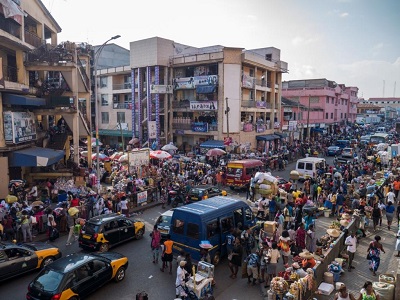Fitch Flags Risk Triggers for Ghana Rating Downgrade Despite Recent Upgradell
Global credit rating agency Fitch Ratings has outlined a set of potential downside risks that could prompt a future downgrade of Ghana’s sovereign credit rating, despite the country’s recent upgrade to ‘B-‘ with a Stable Outlook.
In its latest assessment, Fitch pointed to the possibility of renewed liquidity pressures arising from weaker-than-expected fiscal consolidation efforts or the realisation of contingent liabilities, which could impair the government’s capacity to meet its debt obligations.
The rating agency further noted that diminished market confidence in the government’s ability to refinance upcoming maturities—particularly if efforts to reopen the domestic bond market prove unsuccessful—could also trigger a negative rating action.
Additional risks include external liquidity pressures, such as a decline in international reserves stemming from persistent current account deficits, which could undermine the country’s external financing position.
On the upside, Fitch stated that a sustained reduction in the public debt-to-GDP ratio, supported by credible and effective medium-term fiscal consolidation, could warrant a future upgrade of the country’s credit rating. A steady accumulation of international reserves toward levels consistent with ‘B’ rated peers would also support macroeconomic stability and boost investor confidence in Ghana’s debt-servicing capacity.
Country Ceiling Maintained
Fitch maintained Ghana’s Country Ceiling at ‘B-‘, aligned with its Long-Term Foreign Currency Issuer Default Rating (IDR). This alignment reflects the absence of significant constraints or incentives for authorities to impose capital or exchange rate controls that would impede the private sector’s ability to convert local currency and transfer proceeds offshore for debt servicing.
ESG Considerations Weigh on Rating
On environmental, social, and governance (ESG) metrics, Fitch assigned Ghana an ESG Relevance Score of ‘5’ for Political Stability and Rights. The country’s below-50 percentile ranking on governance indicators exerts a negative influence on its credit profile, the agency noted.
Ghana also received a score of ‘4’ for Creditor Rights, indicating that while the willingness to service debt remains relevant to the rating, it continues to be a key rating driver for the country, as is the case with all sovereigns.
Fitch’s latest outlook follows Ghana’s recent progress on debt restructuring and macroeconomic stabilisation, though the agency remains cautious on the country’s fiscal and external vulnerabilities.








